Publications
Articles, publications, books, tools and multimedia features from the U.S. Institute of Peace provide the latest news, analysis, research findings, practitioner guides and reports, all related to the conflict zones and issues that are at the center of the Institute’s work to prevent and reduce violent conflict.
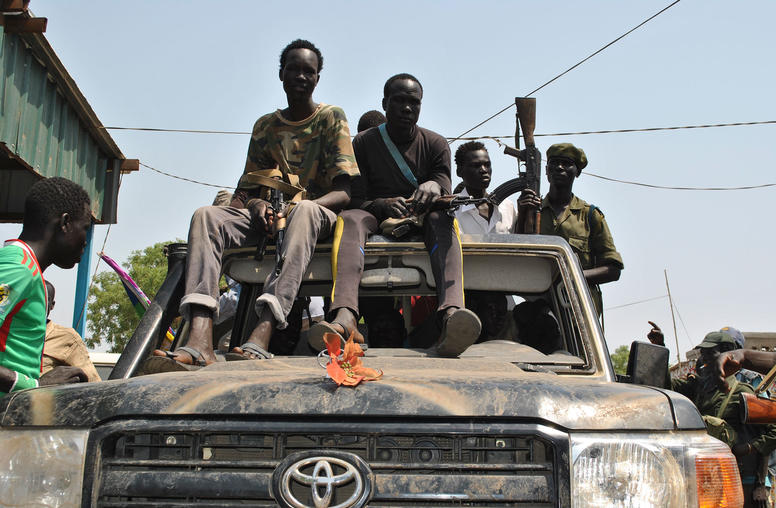
South Sudan’s Pitfalls of Power Sharing
This week, a new proposal for a power sharing government was tabled at the ongoing Intergovernmental Authority on Development (IGAD) High Level Revitalization Forum (HLRF) peace talks for South Sudan. An earlier, 2015 peace deal also contained a formula for power sharing; that arrangement failed and the civil war re-ignited a year later. Power sharing arrangements are appropriate if certain conditions are met, but not enough has been done to ensure the latest proposal will overcome the obstacles present in South Sudan, according to Susan Stigant, USIP’s director for Africa programs and Aly Verjee, a visiting expert at USIP and a former senior advisor to the IGAD mediation, who comment on the proposal and suggest how it could be improved.
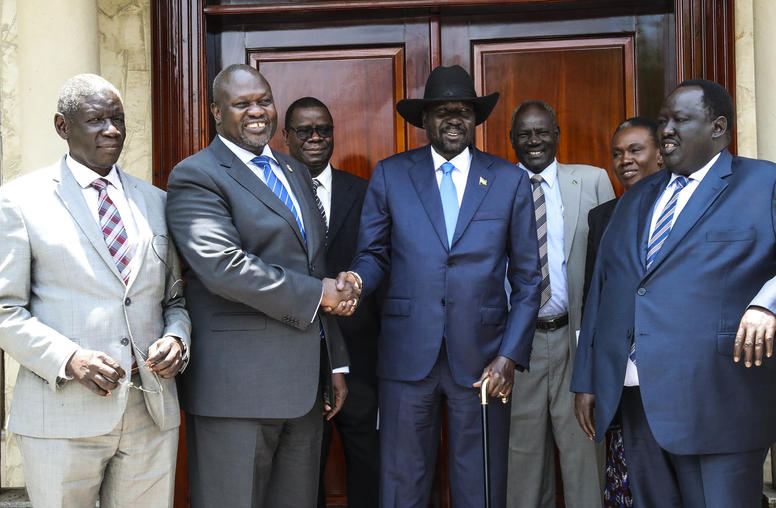
South Sudan: Hope for the Best, Plan for the Worst
With little more than a month left before a new transitional government is set to assume power in South Sudan, efforts to keep the latest peace agreement on track are becoming more urgent, even as most key pre-transition deadlines have been missed and the political will of the belligerents remains in doubt. Given these circumstances, efforts to support the current process remain vitally necessary and thorough planning for the worst-case scenarios is also desperately needed in case South Sudan’s fragile peace collapses.
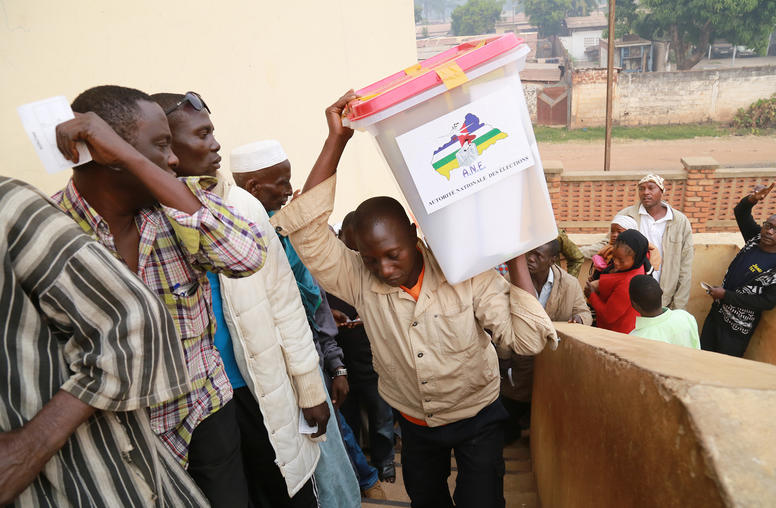
What is the Central African Republic’s Divided Parliament For?
As the U.S. House of Representatives continues to adapt to the leadership of a new speaker, 6,000 miles away, the legislature of the Central African Republic (CAR), the National Assembly, has also recently elected a new leader. However, a change of leadership will not be sufficient to overcome the many challenges and weaknesses faced by this parliament, as the country continues to face rebel groups, communal violence, corruption, and intransigent poverty. The responses of many representatives to recent interviews with USIP raise a more fundamental question: given the context of the CAR, what is a parliament for?
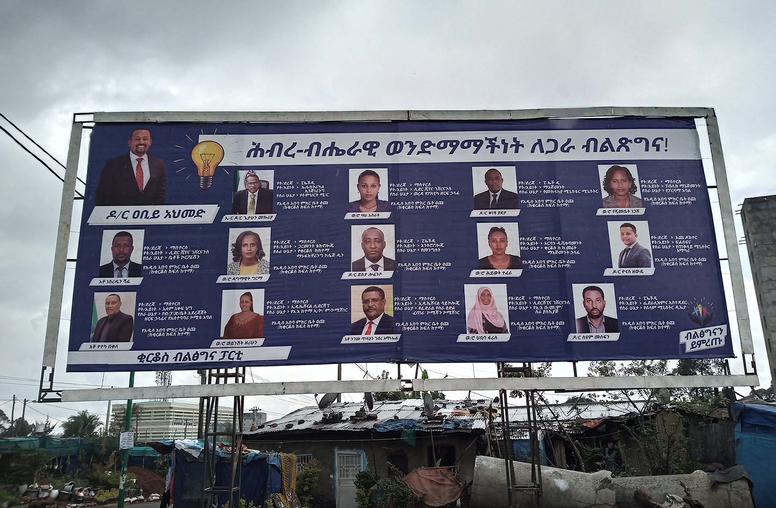
Why Ethiopia’s 2021 Elections Matter
Facing numerous technical difficulties, the National Election Board of Ethiopia (NEBE) delayed parliamentary elections from June 5 to June 21, postponing the vote for the second time. Some major opposition parties are boycotting, and no voting will take place in civil war hit Tigray or in several other areas facing insecurity. Elsewhere, deficiencies in election administration have meant voting has already been postponed in many constituencies, and some of the logistical arrangements to underpin the vote are still to be implemented. Although there are risks of electoral violence, any incidents are unlikely to be especially significant in a context of high levels of ongoing political violence.
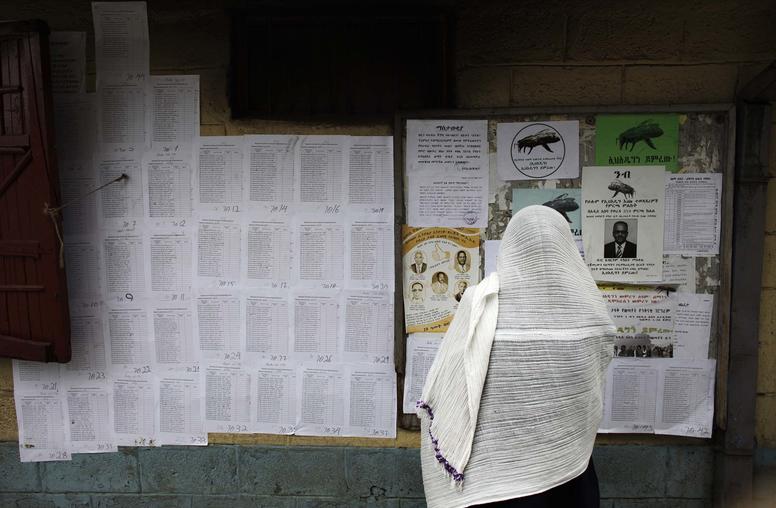
Ethiopia: Contemplating Elections and the Prospects for Peaceful Reform
Ethiopia is approaching parliamentary elections on June 5. This will be the first vote since the process of reform launched in 2018 by Prime Minister Abiy Ahmed, and the stakes are extremely high. Elections to the next national parliament, the House of People's Representatives, may determine future decisions about the structure of the country and consolidate the ruling party’s power. While the short-term outlook for the vote is unlikely to change, the election may offer opportunities to support political dialogue which could sustain important reforms and decrease polarization.
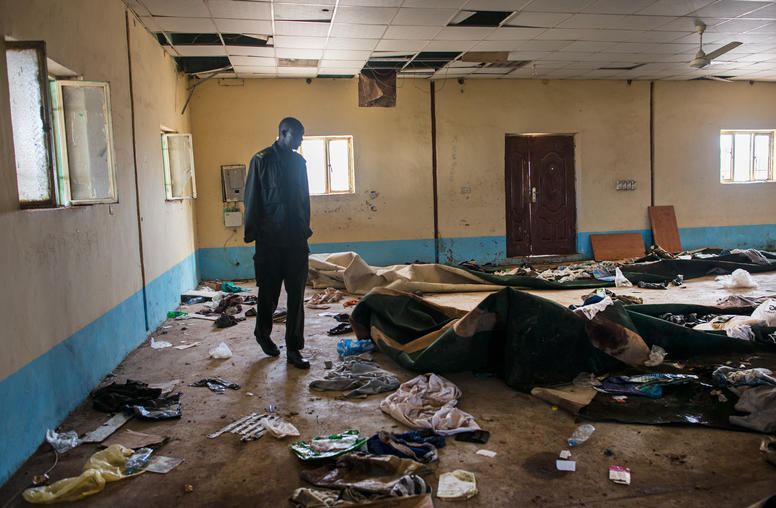
Q&A: Sudan, South Sudan Wars--Special Envoy Needed?
As the war in South Sudan rages on, its dynamics are influenced by events across the border in Sudan and by the policies of neighboring countries, regional groups and the broader international community, notably the U.S. It’s just the kind of situation that cries out for an American diplomat with the stature and the ability to work across borders to help resolve the myriad conflicts underlying the fighting, according to former Special Envoy to Sudan and South Sudan Princeton Lyman and two other former diplomats.
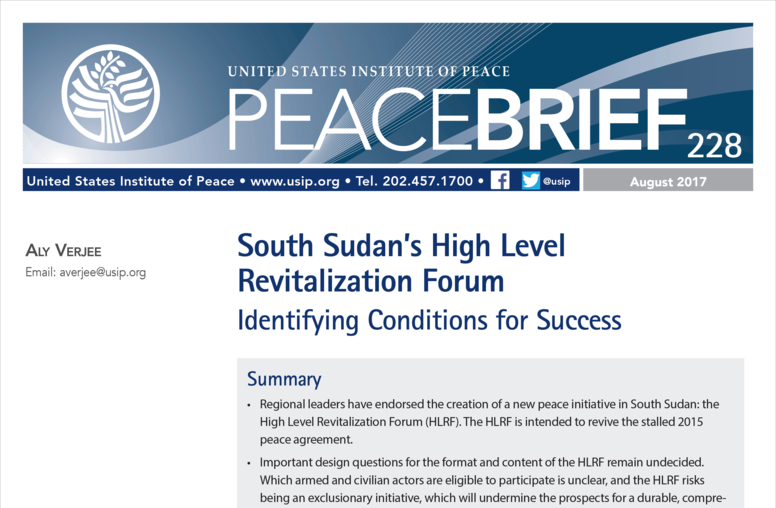
South Sudan’s High Level Revitalization Forum
Regional leaders have endorsed the creation of a new peace initiative in South Sudan: the High Level Revitalization Forum (HLRF). The HLRF is intended to revive the stalled 2015 peace agreement in the country. This Peace Brief offers recommendations...
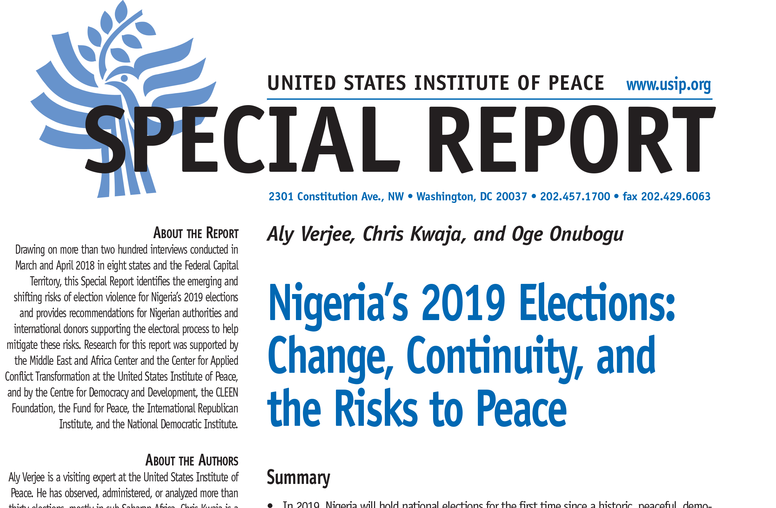
Nigeria’s 2019 Elections: Change, Continuity, and the Risks to Peace
Drawing on more than two hundred interviews conducted in March and April 2018 in eight states and the Federal Capital Territory, this Special Report identifies the emerging and shifting risks of election violence for Nigeria’s 2019 elections and provides recommendations for Nigerian authorities and international donors supporting the electoral process to help mitigate these risks.
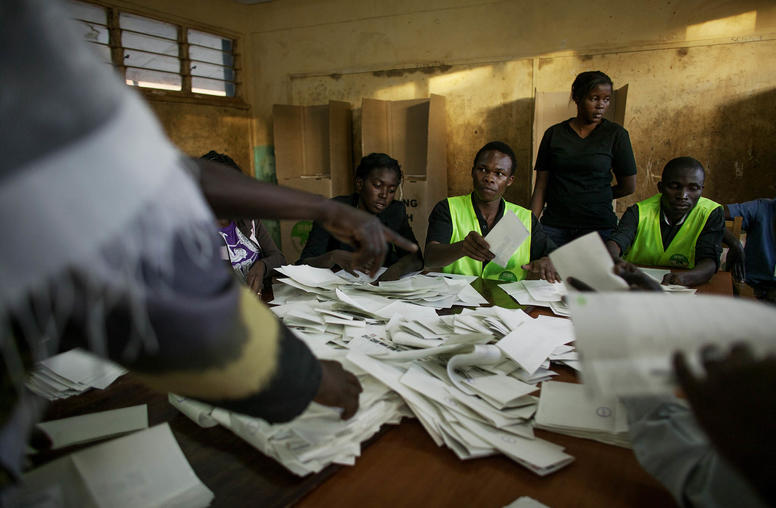
Three Early Lessons from Kenya’s Elections
On August 15, William Ruto was declared president-elect of Kenya, following a vote last week. His chief competitor, Raila Odinga, rejected the results and says he will go to court to seek their invalidation. So far, little evidence of electoral misconduct has been presented, with most observers suggesting the conduct of the polls improved compared to the last vote in 2017. As the country waits for the judicial process to unfold, here are three takeaways from this year’s Kenyan experience.
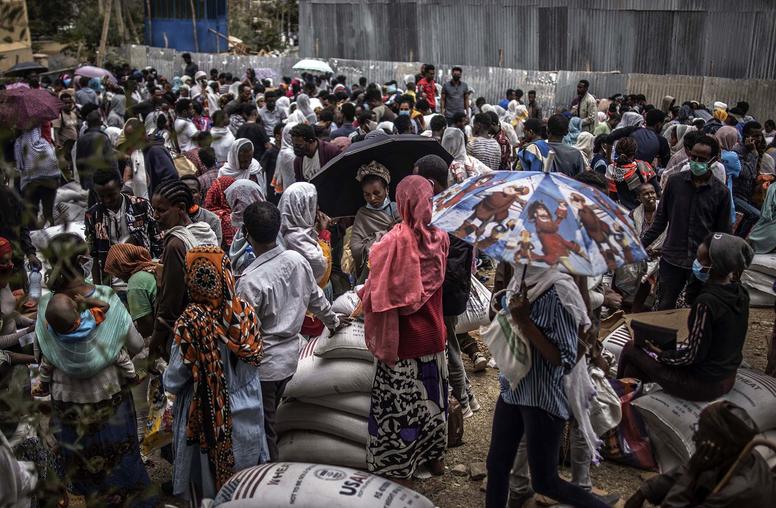
Five Steps to Sustain a Cease-Fire in Northern Ethiopia
After months of war and amid an intensifying humanitarian crisis in Ethiopia’s northern region of Tigray, the Ethiopian government unilaterally declared a “humanitarian cease-fire” on June 28. If Ethiopia wants this truce to end the war it needs to persuade Tigrayan forces, which have so far vowed to keep fighting, to agree to a deal. As a prelude to wider negotiations, the odds of ending the conflict would improve if confidence building measures are urgently undertaken and five key areas of a truce expanded. U.S. and international partners can promote these steps while recognizing that Ethiopians must own any cease-fire process.